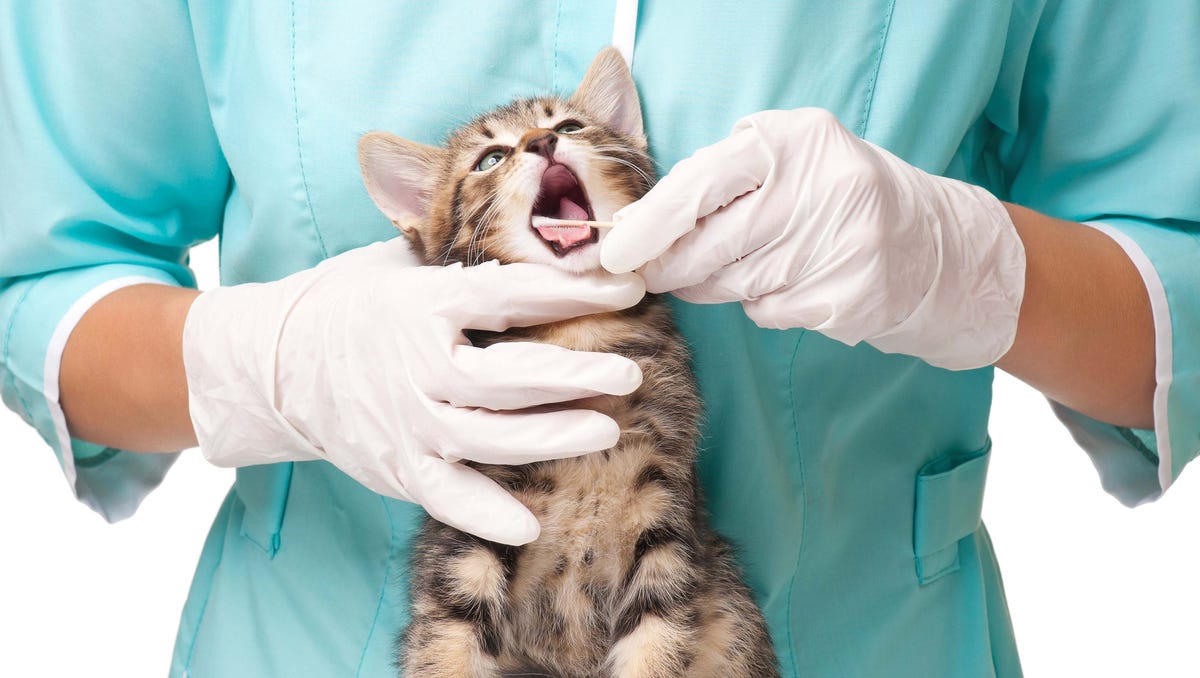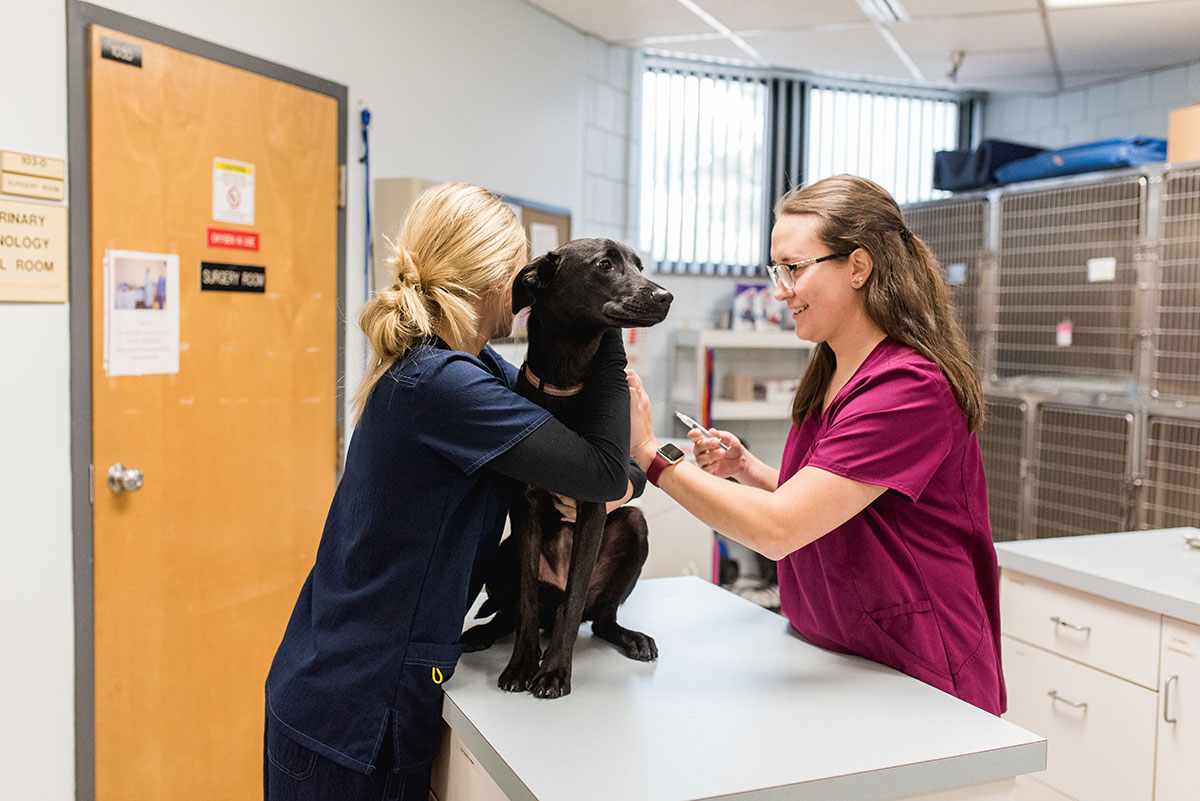
A veterinary intern is a doctor of veterinary medicine (DVM) who spends some time in a practice after completing veterinary school to gain practical experience. An internship can be the perfect stepping-stone to a residency training or a more advanced specialty. The experience is invaluable, allowing the veterinary professional to better prepare themselves for the work and challenges of their chosen field.
Internships provide a unique opportunity to learn about veterinary medicine under the guidance of veterinarians with years of experience and other members of staff. These experiences help you decide whether this profession is right and can lead to better opportunities for employment once you graduate.
Veterinarian Placements
Veterinary placements can be found at universities, private practices or hospitals. Veterinary Internship and Residency Matching Programs (VIRMP) are the most common way to find them. You can find most internships on the VIRMP website.
Some internships - especially at larger referral centres - involve more challenging cases that you might encounter in smaller private practices. This can be an excellent way to build your confidence in your skills and learn new procedures, techniques, and diagnostic testing.

Zoo Veterinary Internships
Any student who is interested in the medical or surgical care of animals will enjoy a visit to the zoo. You'll have the opportunity to help with a variety of animal treatments and procedures, as well as learn how to operate an animal hospital. You will also learn to care for and interact with exotic and native animals in a fun and educational environment.
The best wildlife veterinary internships abroad
As a veterinary assistant, you can work in tropical climates with many different species. Thailand, Costa Rica, or Nicaragua are some of the places you might consider.
Thailand offers a unique, affordable internship. You'll gain knowledge about animal health care and rehabilitation. You will also be able to work in veterinary clinics, animal shelters and participate in conservation projects.
Veterinary Technician Internships
A veterinary technician internship is an important stepping stone to becoming a licensed veterinary technician. The mentors of the interns are there to provide guidance and support, while their peers can help them in difficult situations.
Veterinary technician internships are available at many American Veterinary Medical Association accredited veterinary technical schools. These are usually paid, part-time jobs that are designed to support a student's AVMA education.

Another type of veterinary intern that is becoming increasingly popular among students are vet assistant internships. An assistant veterinarian works directly under a vet in this type of internship.
Some veterinary technicians may be assigned a specific task in the clinic. They might assist with X rays or surgeries. Alternatively, they can provide administrative support to the veterinary team or help with clerical duties.
FAQ
What is the appropriate age for a child with a pet to get?
Children under five years old shouldn't have a pet. Children under five years old should not own cats and dogs.
Pet owners often end up with their children being bitten. This is especially true for small dogs.
A few breeds of dogs, like pit bulls can be quite aggressive towards other animals.
Even though dogs may appear friendly, this doesn't mean they won't attack other animals.
It is important to train your dog if you get a pet dog. Your child should always be supervised while playing with the dog.
Three things you should think about before getting a cat.
These are the questions to ask before you buy a cat.
-
Are there any health issues in the cat?
-
Is it possible for the cat to eat all my food.
-
Do I want a cat to love cats or just a pet?
Should I spay/neuter my dog?
Yes! Spaying and neutering your dog is very important.
It does not only decrease the number unwanted puppies, but also reduces the likelihood of certain diseases.
For example, breast cancer rates in female dogs are higher than in males.
There is also a greater chance of testicular carcinoma in males than in females.
The spaying or neutering of your pet can also help to prevent her from having babies.
How often should my dog be groomed?
It is essential to groom your dog. Grooming your pet helps keep it clean and maintains his coat.
Dogs should be brushed twice per week. Brush your dog after every meal.
Brushing your dog's fur will remove loose hair and dirt. Brushing his teeth will help him look healthier.
Also, make sure to clean his ears.
Should I get a puppy or a kitten?
It all depends on who you really are. Some people prefer puppies while others like kittens.
However, dogs are more playful and active than their human counterparts. Kittens often sleep a lot and can be very gentle.
Both types of animals require lots of attention from their owners. They will be able to grow quickly and require lots of care.
Regular medical checks will be required for them. So, you'll need to spend time taking them to the vet.
How do I know if my dog has fleas?
If you notice your pet scratching at its fur, licking itself excessively, or looking dull and unkempt, then chances are he/she may have fleas.
Flea infestations may also be indicated if your pet is experiencing redness.
Take your pet to the veterinarian as soon as you can for treatment.
Statistics
- Reimbursement rates vary by insurer, but common rates range from 60% to 100% of your veterinary bill. (usnews.com)
- It is estimated that the average cost per year of owning a cat or dog is about $1,000. (sspca.org)
- * Monthly costs are for a 1-year-old female mixed-breed dog and a male domestic shorthair cat less than a year old, respectively, in excellent health residing in Texas, with a $500 annual deductible, $5,000 annual benefit limit, and 90% reimbursement rate. (usnews.com)
- In fact, according to ASPCA, first-year expenses can sum up to nearly $2,000. (petplay.com)
- For example, if your policy has a 90% reimbursement rate and you've already met your deductible, your insurer would pay you 90% of the amount you paid the vet, as long as you're still below the coverage limits of your policy. (usnews.com)
External Links
How To
How to choose the perfect name for your pet
The most important decision you will make when adopting an animal is choosing a name. You want your pet's name to reflect their personality.
Consider how other people may refer to them. If you are going to use their name during conversation, for instance. Finally, think about how you'd like to be referred. Are you more comfortable calling yourself "dog" or your "pet"?
These are some tips to get you started.
-
Select a name to fit your dog's breed. Look up the names of the breeds if you know the breed (e.g. Labradoodle). Ask someone who has a deep understanding of dogs for suggestions on naming a dog after the breed.
-
Think about the meaning of the name. Some breeds are named for people or places, others are nicknames. A Labrador Retriever, for example, was given the name "Rover" as he was always running around.
-
Think about how you'd like to be called. Is it more fun to be called "dog" than "pet"? Would you prefer to refer to your dog as "Puppy," or "Buddy",?
-
Make sure to include the owner's name. It is a smart idea to give your dog a name that includes both your first and last names. However, it doesn't mean you should limit yourself to just including the names of family members. Your dog might grow up to be a member your family.
-
Keep in mind, many pets have multiple nicknames. A cat, for example, might have multiple names depending on where she lives. While she may be called "Kitty Cat" at her home, she might go by "Molly" when visiting her friends. This is especially true if the cat lives outside. They will often adapt their names to match their environment.
-
Be creative There are no set rules. It is important to pick something distinctive and memorable.
-
Check to make sure your chosen name hasn't been used by someone else or a group. That way, you won't accidentally steal someone else's identity!
-
Finally, remember that choosing a name for your pet isn't an exact science. Sometimes, it takes time for you to choose the right name. You can keep searching until you find your perfect match.